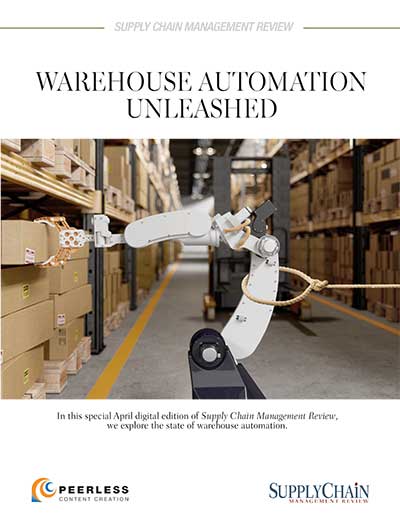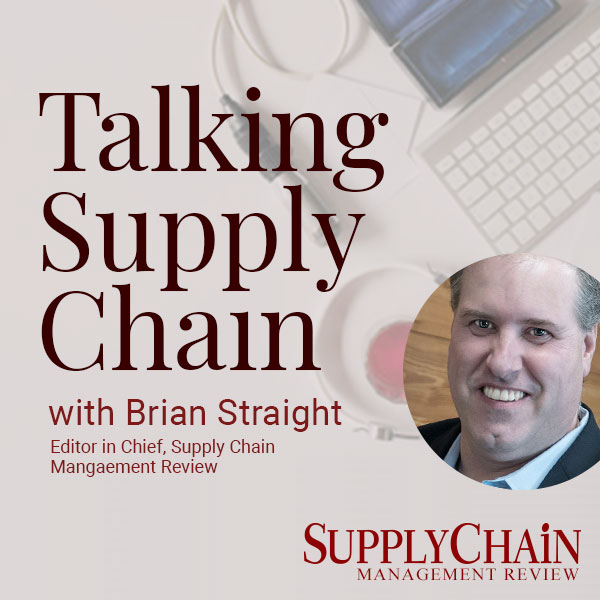This month we spoke with Michael Zimmerman, a Partner and the Americas Lead for Analytics at the management consulting firm A.T. Kearney. He specializes in logistics procurement, network optimization, transportation and supply chain management. He is also co-author of this year's State of Logistics Report from CSCMP.
NextGen Supply Chain: This year's State of Logistics Report is the 30th in the series. You and A.T. Kearney have done it the last four years. While you haven't been at it from the beginning, what is different this time around?
Zimmerman: That's a good place to start because key factors have changed at the same time. The cost of technology has come down, the activities that can be automated have increased and investment has poured into TransTech. In fact, TransTech investments now rival those in FinTech. The number of providers of those more economical technologies has also increased. That puts us in a different spot than past years as advanced technologies are applied to logistics and its many rote activities.
You could say we are now in a virtuous cycle of investments, advancements and feasibility. The bottom line is that more can now be automated reliably so humans can do more productive things.
NextGen Supply Chain: What is the impact of all that on logistics?
Zimmerman: You could say agility is the holy grail of logistics these days. Third-party logistics providers, in particular, are going through a never-ending search for how they can become more agile driven by their shippers' need to become more responsive to increasingly fickle markets. Industries leading the charge are CPG and retail followed by industrial companies. They are all about agility. And they play very strongly into the push to adapt and adopt NextGen technologies that make supply chains more agile.
The report identifies many of these technologies from artificial intelligence and blockchain to 5G cellular and robotics, to name just four. Fundamentally, these and related technologies will dramatically change how business is done.
NextGen Supply Chain: Tell us a little more about some of those technologies you mentioned.
Zimmerman: I'm going to start at a slightly higher level. And that is – why are these technologies important in the first place? I mentioned the automation angle but there is an even greater opportunity here. To me, it's all about real-time network optimization. That is beginning to emerge as the framework that all of these technologies fit into.
Real-time network optimization is about the dynamic planning and reallocation of resources on the fly. It reconciles network dynamics, network density, network congestion, service and cost. The technology is what makes it possible to untangle all of this and maximize agility. This is where we are all headed.
Getting there is going to require 5G to enable the data from all the other technologies to be more available, precise and usable. That includes the Internet of Things, GPS transponders, RFID and other geo-location devices. Precision and communications is the foundation of the agility we are chasing.
Blockchain has great promise for the tracking and sharing of all of these activities to maximize their value to logistics. It is the distributed ledger that provides total transparency of all logistics handoffs. The immutability of blockchain is central to its authority in logistics transactions.
Furthermore, artificial intelligence will allow networks to learn and decide more quickly with less human interaction. And that will be at all levels from the network to the picking robot. When you come down to it, these and other NextGen technologies are rapidly building a new logistics network that will in short order will be far more agile than they are today.
NextGen Supply Chain: So many people today are very concerned by how these and other forms of automation are advancing, perhaps even replacing them personally. What are your thoughts here?
Zimmerman: People are clearly under more pressure to consider changes to how work gets done. Human nature has not changed, so people's sense of risk hasn't changed, and so the buyers of these technologies want to see proven use cases and a realistic adoption path. Solution providers are there with more convincing success stories.
The other important force here is rising costs. As costs increase, logistics leaders tend to listen more. And now there are more vendors than ever.
That means logisticians have to be more agile in how they approach the work and the rate at which it is changing. However, few have the ability or means to raise agility at an acceptable cost. This is why the business press is full of stories of heavy losses as traditional retailers seek to break into e-commerce or industrial companies seek to shift their supply chains in the face of trade disputes.
The new people coming into the workforce are the tip of the spear here where the more recent graduates from schools with logistics and supply chain programs are prepared for and expecting to be part of that agility while those who have been at it awhile don't always see agility as such a necessary ability or goal.
What everyone has to come to realize is that we are in the midst of painful landscape in logistics. That's we titled the report “Crest of the Hill.” The other authors and myself like to think that there is a new bias for collaboration in logistics.
We like to think that NextGen technologies are a new source of value for shippers and carriers. It's the only way we're going to move Beyond the zero sum game that has historically defined the shipper-carrier relationship.
Gary Forger is special projects editor for SCMR. He can be reached at [email protected].
SC
MR


More Events
- Next-Gen SupplyChains: Underpinning your ability to manage complexity and drive innovation
- The Future of Supply Chains: Next-Generation Technology and Beyond
- Thanks to all who made NextGen a success
- Medline Executives’ Keynote to Kick Off NextGen Supply Chain Conference
- NextGen Supply Chain Conference 2022: About our event
- Industry Innovators Take Home 2022 NextGen Supply Chain Awards
- More Events
Latest Resources

 Explore
Explore
Topics
Software & Technology News
- Tech investments bring revenue increases, survey finds
- Survey reveals strategies for addressing supply chain, logistics labor shortages
- AI, virtual reality is bringing experiential learning into the modern age
- Humanoid robots’ place in an intralogistics smart robot strategy
- Tips for CIOs to overcome technology talent acquisition troubles
- Game on: Rethinking change management for the digital era
- More Software & Technology
Latest Software & Technology Resources

Subscribe

Supply Chain Management Review delivers the best industry content.

Editors’ Picks




